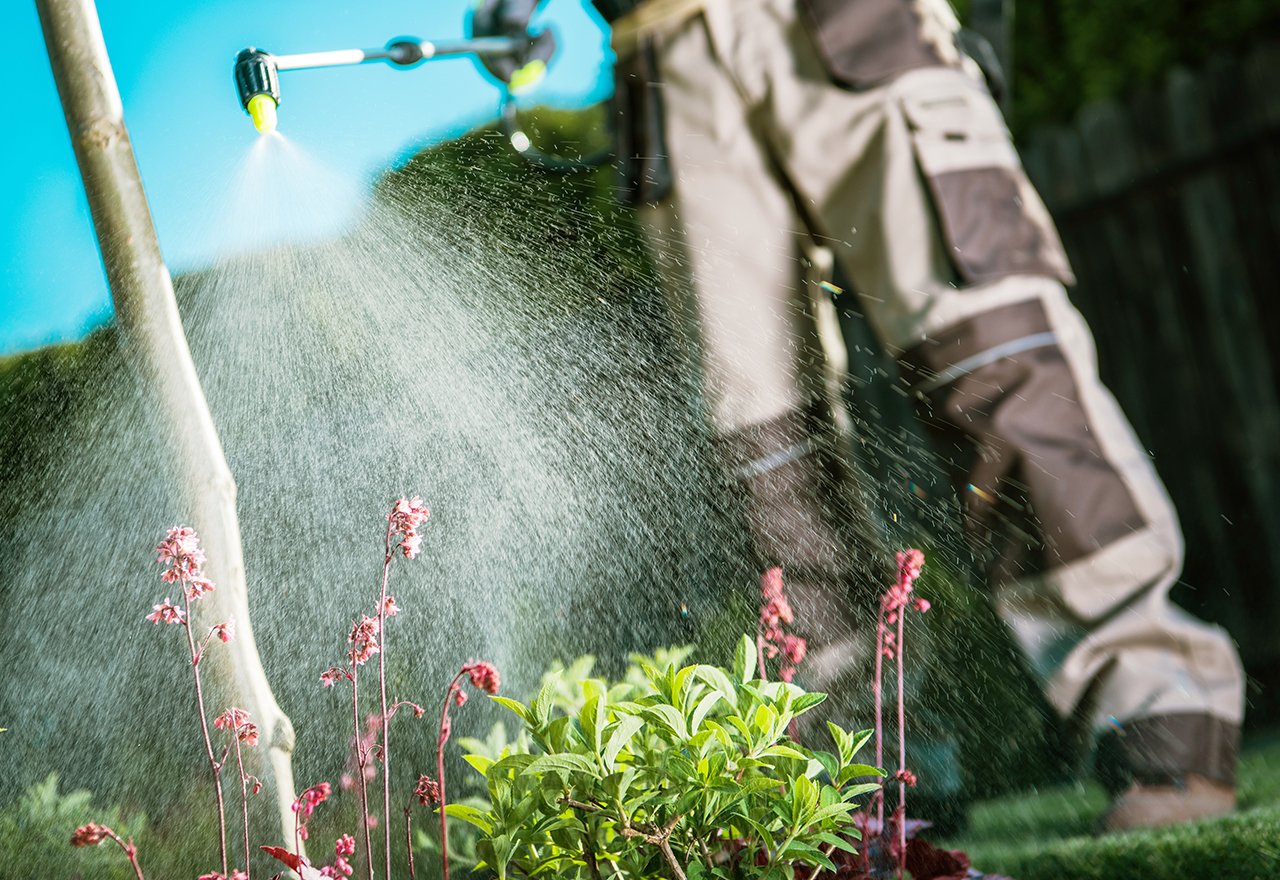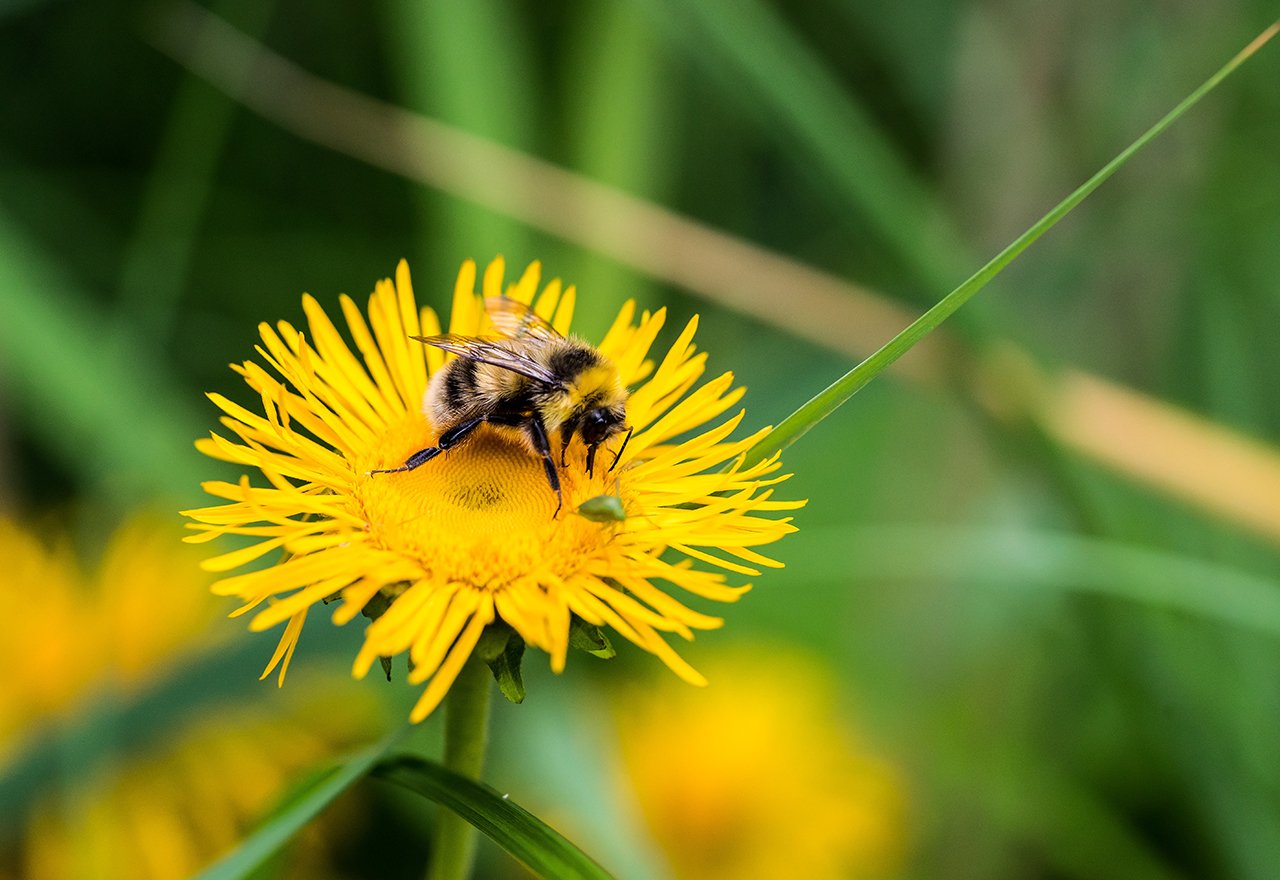The Worst Chemical On Your Lawn Isn’t Roundup
by Maureen Wise, on May 15, 2024
Roundup is getting a lot of attention these days, as people are finally starting to realize how dangerous its ingredients can be long term. Roundup is used on thousands of acres of agriculture grown for our consumption, and we're starting to see the negative effects on our health and the environment. It is everywhere. Not only can it be found in the food we eat, but it is also widely used on the lawns of people throughout the United States. While Roundup is definitely not a good product to use (try swapping for the natural alternative Burnout Organic Weed & Grass Killer), it’s also not the worst chemical used in landscape care. Did you know that 2,4-D, the standard weed and feed product used on lawns, is about 10 times more toxic than Roundup? If you still use an ordinary lawn care company, weed and feed products or insecticides, you have not eliminated the worst chemicals on your lawn.

More About 2,4-D
2,4-Dichlorophenoxyacetic Acid, usually shortened to 2,4-D, is a very common weed killer that does not affect many grass species. It serves as the main active ingredient in many weed and feed products, such as Ortho Weed B Gon, Spectracide, and Weedone.
While this herbicide does kill undesirable plants, it also drifts easily and kills nearby plants, that were otherwise not problematic. Furthermore, like Roundup, 2,4-D is toxic to aquatic life, as well as birds, bees and your pets. Dogs raised in lawns with higher levels of 2,4-D have increased incidents of cancer. If ingested or rubbed on the skin, this chemical can make someone very sick. Some of the side effects include; coughing, burning at the site of contact, dizziness, loss of muscle coordination, nausea, diarrhea and vomiting. It can also cause nerve system damage, gene mutation, and is linked to endocrine system damage, including decreased testosterone and ovulation changes that negatively affect reproduction.
In most cases, weed and feed products can be replaced by mowing high and incorporating a more organic approach. Good Nature provides advice and information in the Resources section of our website. Additionally, we offer services, such as Natural Weed Busters, Natural Pest Suppression, and Organic Landscape Weed Suppression.
Pyrethroids
A synthetic product based on an extract of mum plants, pyrethroids are strong insecticides typically sprayed on trees and shrubs, and sometimes used to treat head lice. They harshly affect the nervous systems of insects, killing them quickly. They can be found in common insecticides as Talstar, Demon, Raid Roach Fogger, Ambush, and Dragnet. They persist in the environment long after application.
Pyrethroids are not digested easily by mammals, whose livers filter them out. Instead of nervous system damage, humans that come in contact with pyrethroids often experience symptoms of an allergic reaction such as hives, headaches and strained breathing, with very severe responses such as tremors and convulsions being rare. Babies, without mature livers, may show much stronger reactions. That being said, direct ingestion may cause death. Long term exposure has been linked to breast cancer and endocrine system disruption, often disrupting the reproductive organs. Fish and aquatic bugs, as well as any beneficial insects, will also be poisoned if they make contact with the chemical. Pyrethroids are typically sprayed into the air around trees and shrubs. It can then blow around the yard, into open windows, onto kids outdoor toys, into streams and other water bodies. Learn more about this issue in these two Beyond Pesticides Factsheets; Synthetic Pyrethroids, and Common Pesticides .
Alternatives to get rid of problem bugs on trees and shrubs include Neem Oil, Garlic Oil and Compost Tea. We also recommend avoiding synthetic fertilizers, which stimulate too much growth at the expense of defenses.

Neonicotinoids
Another toxin often used on lawns are insecticides, or “neonics” for short, which are in the neonicotinoid family. These are chemicals that go by the names of Imidacloprid, Clothianidin, Thiamethoxam, Dinotefuran and Acetamiprid. They’re found in products such as Ortho Bug B Gone, Ortho Flower, Fruit & Vegetable Insect Killer, Hot Shot Roach, Ant Gel Bait, Meridian Insecticide, Arena Insecticide and others. Studies have been revealing that this family of chemicals is a key contributor to Colony Collapse Disorder, which has caused the death of many bees worldwide. Even doses that don’t kill bees can change their foraging, reproduction, smelling and navigation habits and abilities. Neonics similarly affect birds, butterflies and other pollinators, as well as our crops, which can't grow without pollination. This is a huge concern for beekeepers, farmers and ranchers worldwide, and should be equally alarming for all of us! In fact, Canadian beekeepers recently opened a class action lawsuit against two manufacturers of neonics insecticides. Check it out here.
Alternative Solutions
If you have an insect problem in your backyard, we have some tips to get you started. First, we encourage you to focus on growing healthy plants that are less susceptible to insect attack. To get your plants in a healthier place, don’t use high doses of synthetic fertilizers, which make plants more prone to insect attacks. Plant endophyte enhanced grasses, like our Tuff Turf, are naturally resistant to insect attack. Apply a natural plant oil, like Neem Oil, which acts as an insect repellent to Chinch Bugs and other pests. We also recommend Beneficial Nematodes as a non-chemical way to suppress Grubs, Ticks, Fleas and Black Vine Weevils in your lawn and garden.
If you have an insect issue in your home, we have a few tricks to share as well. Try applying Cedar & Peppermint Oil or Diatomaceous Earth around the perimeter of your house to discourage bugs from coming inside. Good Nature is also able to provide this service for you upon your request. You can also use Boric Acid Bait Traps inside the house to keep ants to a minimum. Deny access to any bugs by caulking cracks in the foundation of your home. It's also a good idea to keep food stored in air tight containers or inside fridge, wipe up any crumbs on the floors or countertops and clean any possible pheromone trails.
Find many more ideas and methods on the Bee Protective Fact Sheet, found on the Beyond Pesticides website.
We encourage you to find safe alternatives to these harmful products. You will be protecting your family, your pets, aquatic life and pollinators. We’re happy to help treat your lawn in a healthy way, nourishing your soil and diminishing any weeds. If you choose to take care of any issues yourself, we are here to provide any insight you might need or guidance on natural products that will support your responsible lawn care efforts.











